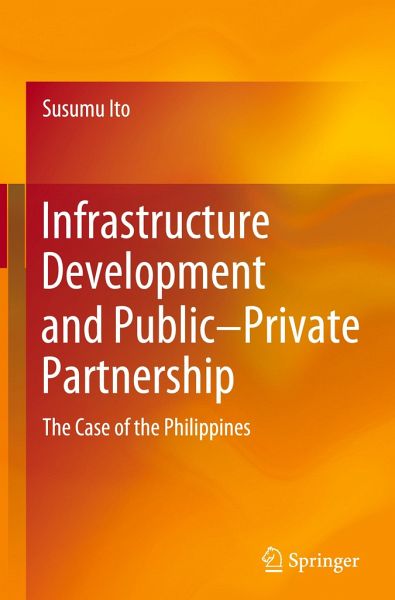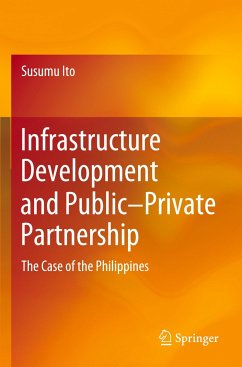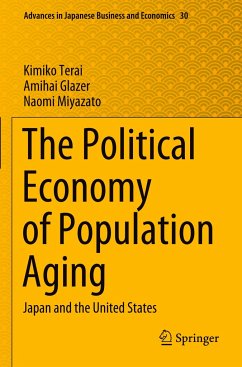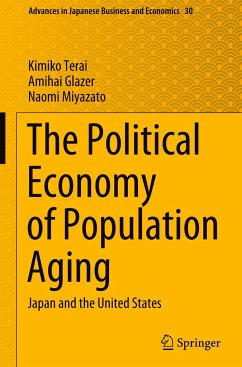
Infrastructure Development and Public-Private Partnership
The Case of the Philippines
Versandkostenfrei!
Versandfertig in 6-10 Tagen
76,99 €
inkl. MwSt.
Weitere Ausgaben:

PAYBACK Punkte
38 °P sammeln!
This is the first book that analyzes public-private partnership (PPP) infrastructure development in developing countries by focusing on recent developments in the Philippines.Infrastructure is extremely important for economic development and poverty reduction. However, given the infrastructure gap and pressures on public expenditure, there is a growing expectation that PPP will fill this gap globally. Over the years, PPP as a mechanism for financing and procuring infrastructure has been the basis of an active and provocative debate in the Philippines, which is known to have inadequate infrastr...
This is the first book that analyzes public-private partnership (PPP) infrastructure development in developing countries by focusing on recent developments in the Philippines.
Infrastructure is extremely important for economic development and poverty reduction. However, given the infrastructure gap and pressures on public expenditure, there is a growing expectation that PPP will fill this gap globally. Over the years, PPP as a mechanism for financing and procuring infrastructure has been the basis of an active and provocative debate in the Philippines, which is known to have inadequate infrastructure-twice in the 2010s, when a significant policy shift on the financing source of public infrastructure was announced by the Philippine government. Drastic policy changes concerning the roles of public finance and PPP in infrastructure development within this decade are not seen in other developing countries.
There is no precedent for substantial study on the changes of infrastructure governance in the Philippines, but this book assesses policy changes in infrastructure development in the country and, as academic contributions, identifies several factors behind the changes related to infrastructure governance there, especially the drastic shifts during the Aquino III and Duterte administrations. Furthermore, the findings presented in the book, including the desirable role of public finance and PPP in developing infrastructure in developing countries, could improve infrastructure governance, such as choice of the financing mode, design, and implementation of the PPP project, in other developing countries as an operable contribution to policymakers of government and to industry and management practitioners.
Infrastructure is extremely important for economic development and poverty reduction. However, given the infrastructure gap and pressures on public expenditure, there is a growing expectation that PPP will fill this gap globally. Over the years, PPP as a mechanism for financing and procuring infrastructure has been the basis of an active and provocative debate in the Philippines, which is known to have inadequate infrastructure-twice in the 2010s, when a significant policy shift on the financing source of public infrastructure was announced by the Philippine government. Drastic policy changes concerning the roles of public finance and PPP in infrastructure development within this decade are not seen in other developing countries.
There is no precedent for substantial study on the changes of infrastructure governance in the Philippines, but this book assesses policy changes in infrastructure development in the country and, as academic contributions, identifies several factors behind the changes related to infrastructure governance there, especially the drastic shifts during the Aquino III and Duterte administrations. Furthermore, the findings presented in the book, including the desirable role of public finance and PPP in developing infrastructure in developing countries, could improve infrastructure governance, such as choice of the financing mode, design, and implementation of the PPP project, in other developing countries as an operable contribution to policymakers of government and to industry and management practitioners.














